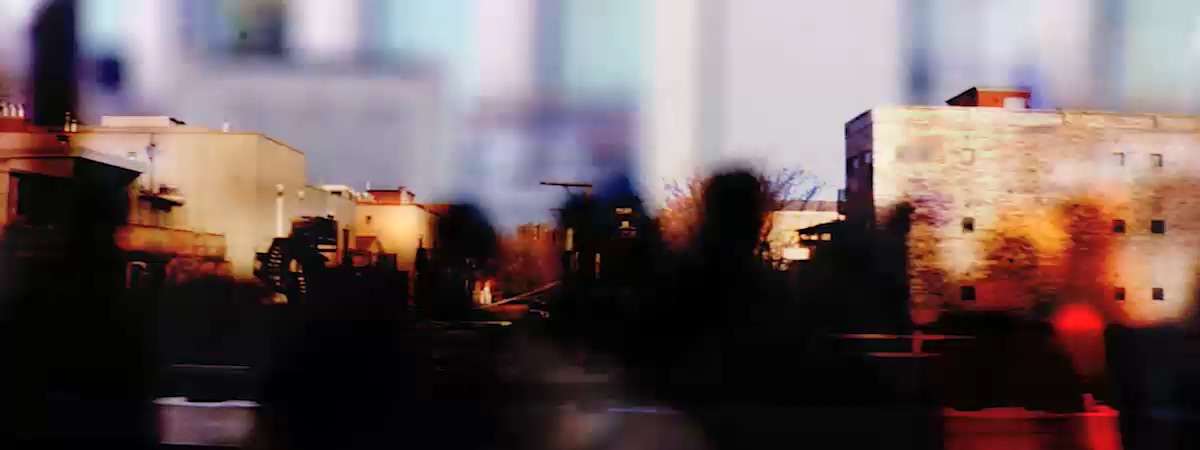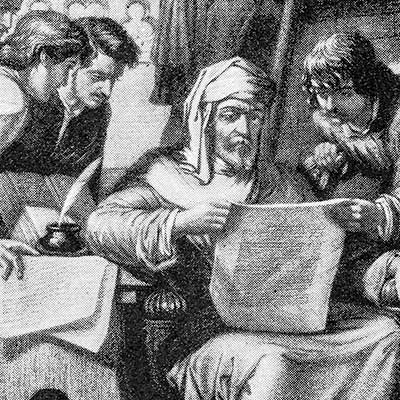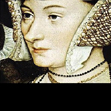
Research highlights
Beyond our major research centres and networks, our researchers collaborate across multiple disciplines to open new horizons of knowledge.
- A/Prof. Steve Threadgold, A/Prof. Julia Coffey and Dr. Julia Cook (with Professor Roger Burrows and Professor Beverley Skeggs) have been awarded $415,519 for their ARC Discovery project Young People, Fintech Use and Future Financial Security. This project will be the first to explore how young people navigate and understand the new landscape of fintech platforms and products, and to uncover the hitherto hidden impacts of fintech sorting and classificatory processes.
- Prof. Jesper Gulddal (with Dr Stewart King; Dr Barbara Pezzotti; Dr Carlos Uxo Gonzalez; Prof. Jarrod Hayes) has been awarded $265,773 for their ARC Discovery project World Crime Fiction: Making Sense of a Global Genre. This project aims to generate new knowledge about the worldwide popularity of crime fiction by analysing the genre’s engagement with the major global challenges of our time, from climate change to the crisis of democracy.
- Dr Effie Karageorgos and Prof. Catharine Coleborne have been awarded $234, 359 for their ARC Discovery project Life outside institutions: histories of mental health aftercare 1900 - 1960. This project aims to show that post-institutional care is central to the history of mental health before the era of deinstitutionalisation.
- Dr. Ryan Strickler (with Prof. Bronwen Neil; Dr Amelia Brown; Dr Estelle Strazdins) has been awarded $230,368 for their ARC Discovery project Images of Power in the Roman Empire: Mass Media and the Cult of Emperors. This project aims to illuminate the role that mass media and images played in securing and sustaining imperial power during the Later Roman empire.
- Prof. Victoria Haskins and Prof. Kate Senior (with Dr Raymond Kelly; Prof. John Maynard; Prof. Richard Chenhall; Dr Frances Edmonds; Prof. Kathleen Clapham; and Mr Gionni Di Gravio) have been awarded $370,408 for their ARC Discovery project Ngukurr to Newcastle: intercultural collaboration and influence. This interdisciplinary project will explore the intercultural contributions of residents from a remote Aboriginal community both on their own community and the broader Australian society.
- Dr. Elizabeth Roberts-Pedersen (with Prof. Noah Riseman, Dr Tristan Moss, Dr Elizabeth Roberts-Pedersen, Dr Alana Piper) has been awarded $264,435 for their ARC Discovery Project, A Century of Sex and the Australian Military, 1914-2020. This project aims to explore how the Australian military and its members have dealt with sex and sexuality.
- Dr. Ümit Kurt has been awarded $369,424 funding for his ARC DECRA project Global Patterns of Mass Violence: Ottoman Borderlands in Context, 1890-1920. This project examines the transformative dimensions of mass violence committed against the minorities of the Ottoman Empire – Armenians, Assyrians, Yazidis, and Greeks – and the historical impact and consequences of the Empire’s violent history on the Balkans and the Levant (Syria, Iraq, and Lebanon).
The University of Newcastle has a long history of world-leading Digital Humanities projects.
John F Burrows as Professor of English at Newcastle in the mid-1970s more or less invented computational stylistics and inspired numerous colleagues and students to pursue digital humanities projects or even careers. Two centres established by the University promoted DH at Newcastle: the Centre for Literary and Linguistic Computing (1989-2024) and the Centre for 21st Century Humanities (2018-22). The Early Modern Women Research Network (2018- ; now based at ANU) completed some major projects in presenting literary and historical resources online as an adjunct to its wider research programme.
The foundational work in Digital Humanities at Newcastle has been particularly important in underpinning collaborations with other universities in Australia and internationally. Eight Australian universities have been partners in UON-led national infrastructure grants. Numerous international workshops and conferences have been hosted at UON, most recently the Mapping Culture and History workshop (2022). Prof Ray Siemens was appointed to a UON Global Innovation Chair in DH in 2019 and has fostered numerous partnerships and connections, including the ongoing Canadian Australian Partnership in Open Scholarship, which has met twice in Newcastle. Active collaborations with international universities have included those with King’s College London, the Jagellonian, Leeds and New York Universities, and the Universities of British Columbia, Massachusetts (Amherst), Victoria (BC) and Würzburg. UON Honorary Professor Erin McCarthy currently leads a European Research Council Consolidator grant with a DH programme and is based at the University of Galway.
DH at Newcastle was fortunate to attract a dedicated and inventive group of developers, including senior undergraduates and RHD candidates in Computer Science and Software Engineering. Dr Bill Pascoe was the lead developer for the Centre for 21st Century Humanities and for the Colonial Frontier Massacre Map and is the System Architect for TLCMap. He led and trained the junior developer group. The data model and visualisation architecture for the CFMM is his, as is the concept and structural design of TLCMap.
Colonial Frontier Massacres Map
The foundation of this important intervention in the history of Australia post-contact is the research of its leader, the late Prof Lyndall Ryan, but its online presentation as an interactive, richly documented resource has amplified its impact immeasurably.
The fifth and final stage of the Map was completed in late 2024. It appears on a UON website and as a layer on TLCMap. The full database is available for download from the Australian Data Archive.
TLCMap
This platform, launched in 2019, collects information about Australian history and culture linked to place. The founding aim of TLCMap was to make the digital affordances of the Colonial Frontier Massacre Map available to all researchers for their own projects. It has searchable national gazetteers and numerous user-contributed map layers. Its assembly of tools and guides aims to make it as simple as possible for researchers to create their own map layers and combine them with existing layers. UON has been the host institution for TLCMap from the beginning. Platform development has also been supported by a number of grants and co-investments from the ARC and the ARDC and by contributions by a group of partner Australian universities.
CLLC
The Centre for Literary and Linguistic Computing (CLLC) was founded in 1989. Ground breaking stylometrist, the late John Burrows, was at the University of Newcastle from 1976 to 1989 when he retired but carried on significant work, collaborating with Dr Alexis Antonia, developing techniques that are now standard methods used world-wide. Emeritus Prof. Hugh Craig joined in 1989 and became director in 2001. Harold Tarrant and Wayne McKenna were other figures who went on to build DH cultures elsewhere.
CLLC methods are modelled and enabled by the Intelligent Archive workbench. The IA is a Java application which can be downloaded for use on a PC or Mac.
Early Modern Women Research Network (EMWRN)
The Early Modern Women Research Network (EMWRN) is an Australian-based network of scholars which aims to bring the often institutionally-isolated scholars of early modern women's writing into dialogue with others in the field, both within Australia and internationally.
EMWRN represents and investigates the various material contexts which women’s writing was circulated during the early modern era in England, through manuscript, print and oral culture, exploring the production, transmission and circulation of texts from the originary moment of their production to later redactions. Now hosted by the ANU, it was created and hosted by the University of Newcastle and one of the major outcomes during that time was the Material Cultures of Early Modern Women’s Writing Digital Archive which presents online editions of women’s writing that circulated in a variety of forms in the sixteenth and seventeenth centuries.
Lab for Applied Language Science
The University’s Lab for Applied Language Science (LALS) is open for anybody who is interested in language development and language use. We aim to offer opportunities for novel interdisciplinary collaborations among linguists, language teachers, psychologists, speech pathologists, educational tool developers, engineers, etc. and to provide trainings for researchers and students who wish to develop skills in experimental approaches to language science.
Associate Professor Kiwako Ito directs the lab.
Higher Degrees by Research (HDR)
Our linguistics staff supervise a range of research thesis topics for Ph.D. and M.Phil. degrees in their specialist areas of expertise. We encourage students to discuss criteria and topics with their potential supervisors well in advance of their application.
Learn more about thesis guidelines
Research topics
PhD and Masters by Research proposals are invited in the following areas:
- Language documentation and description
- Australian and Pacific descriptive language projects
- Second Language Acquisition
- Bilingualism
- Teaching English to Speakers of Other Languages (TESOL)
Linguistics people
Associate Professor Kiwako Ito
Associate Professor
School of Humanities, Creative Ind and Social Sci
Linguistics
Expertise: eye tracking for studying language processing; language acquisition; psycholinguistics; speech signal processing
- kiwako.ito@newcastle.edu.au
- 0249216109
Dr Catriona Malau
Senior Lecturer
School of Humanities, Creative Ind and Social Sci
Linguistics
Expertise: Language description and documentation; Oceanic languages of the Pacific, focussing on Vanuatu
- catriona.malau@newcastle.edu.au
- 0249216687
Professor Bill Palmer
Professor
School of Humanities, Creative Ind and Social Sci
Linguistics
Expertise: language description and documentation; Oceanic languages of Pacific, focussing on Bougainville and Solomon Islands; syntax
- bill.palmer@newcastle.edu.au
- 0249215157
The over-arching theme of the Social Work research program has been the translation of theory and research to inform social policy, social work education and practice. This includes recent Westpac funding for the Name. Narrate. Navigate project. This research network has the following established areas of strength:
- community engagement and capacity building
- child protection
- creativity and art in social work
- environmental social work
- evidence-based social work
- family estrangement
- international, indigenous and decolonizing social work
- social work and health; social work supervision
- knowledge production and transfer in social work
- neoliberal managerialism and its impact on social work and the human services
- social development
- social enterprise
- social policy
- social work education
- social work practice in rural, regional and remove locations
The University of Newcastle acknowledges the traditional custodians of the lands within our footprint areas: Awabakal, Darkinjung, Biripai, Worimi, Wonnarua, and Eora Nations. We also pay respect to the wisdom of our Elders past and present.




